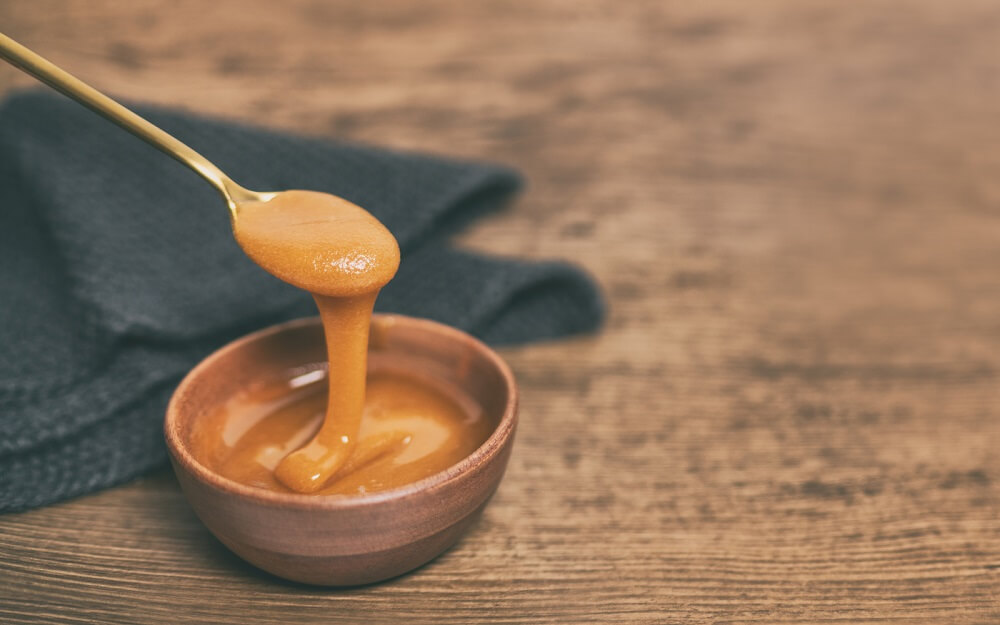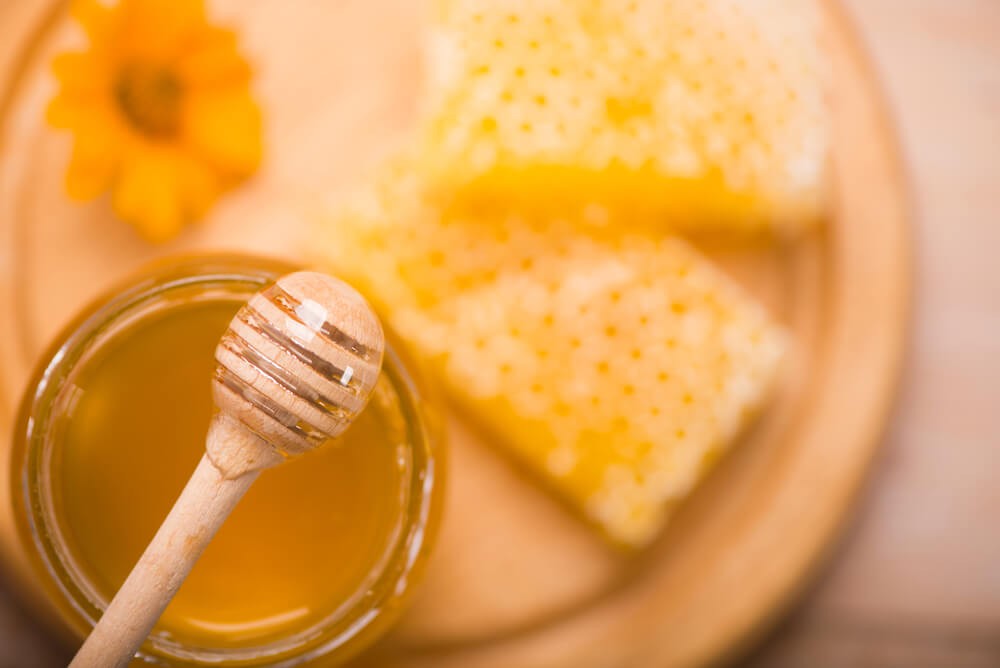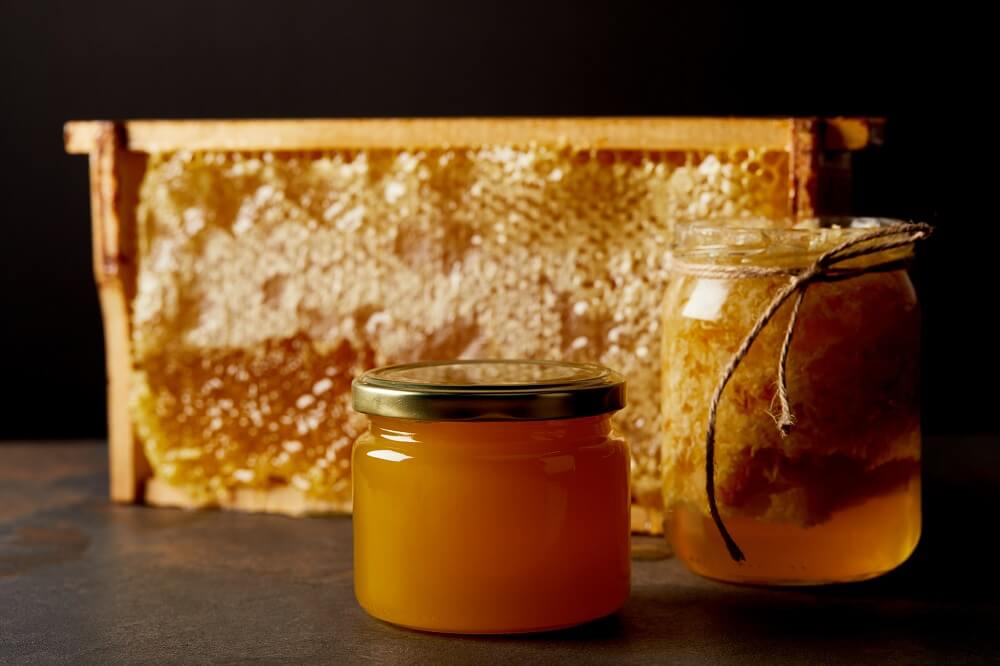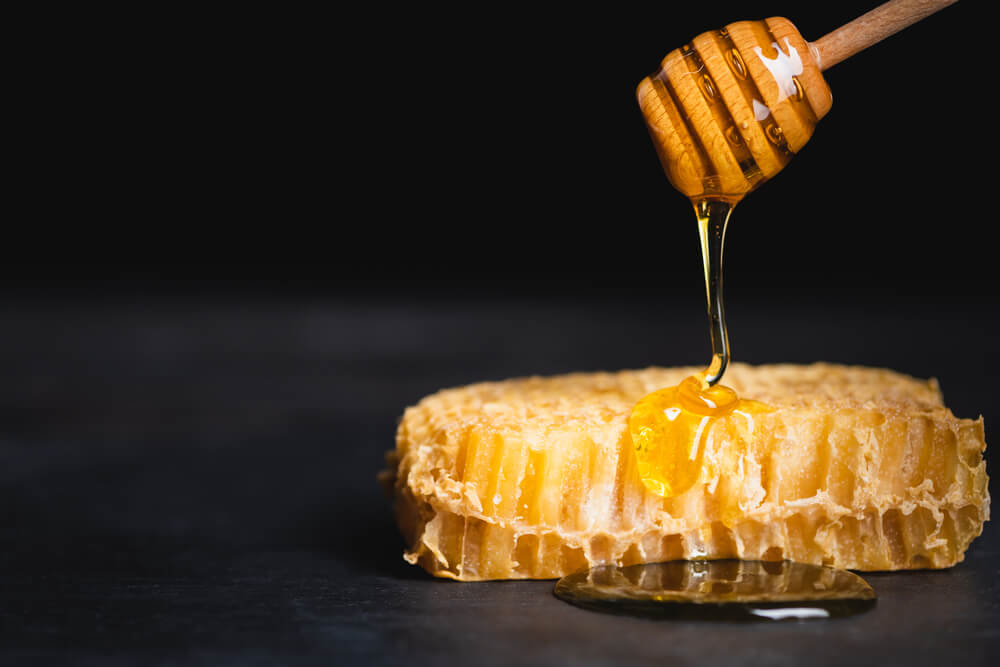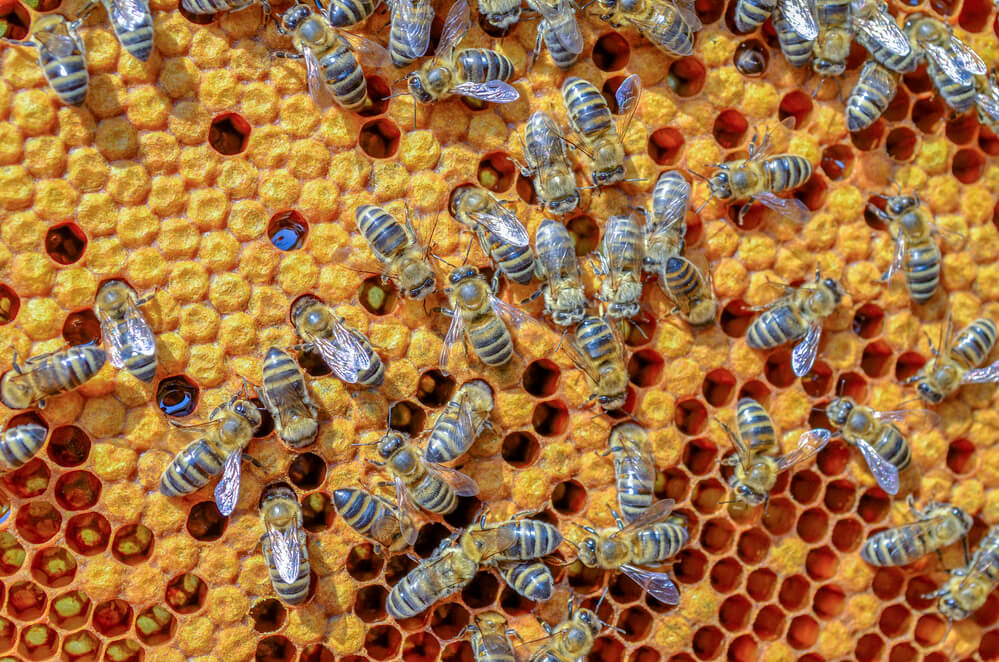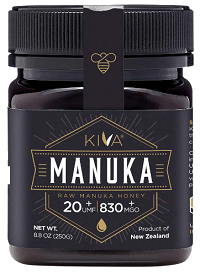Why Is Manuka Honey so Expensive?
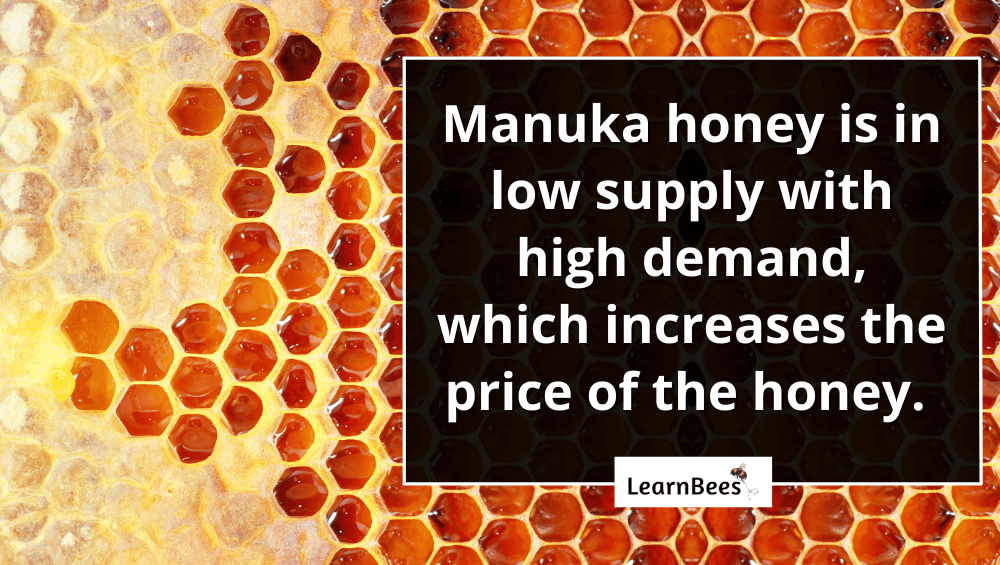
Short answer:
Manuka honey is expensive because that’s the price the market is willing to pay for it. If people weren’t willing to pay for it, then it wouldn’t be so expensive.
Long answer:
It comes down to supply and demand.
Firstly, manuka honey is in lower supply than other types of honey.
This is because it only comes from manuka trees that are native to New Zealand. Compare that to other types of honey, like clover honey, which is widely available at almost every grocery store across the United States.
Secondly, the demand for manuka honey is high.
One reason for the high demand is that this honey has been widely studied in clinical settings. It’s been shown to help heal wounds, improve oral health, soothe sore throats, and even treat skin conditions like acne.(1, 2, 3)

But I’ll shoot straight with you.
Another reason for the high demand is because there’s been a massive marketing push for manuka honey.
Now don’t get me wrong.
This doesn’t mean manuka honey doesn’t come with health benefits. It simply means that the marketing plus pairing it with the UMF rating system is how it got the high price it sells for.
If you don’t know:
The Unique Manuka Factor (UMF) ranking system judges the potency of manuka honey. This rating comes from the UMF Honey Association (UMFHA). It helps protect consumers by ensuring that the manuka honey they buy is authentic.
Additionally, there’s another ranking system called the MGO rating, which comes from an entirely separate organization.
This is why you’ll often see both the UMF and MGO ratings on manuka honey labels.
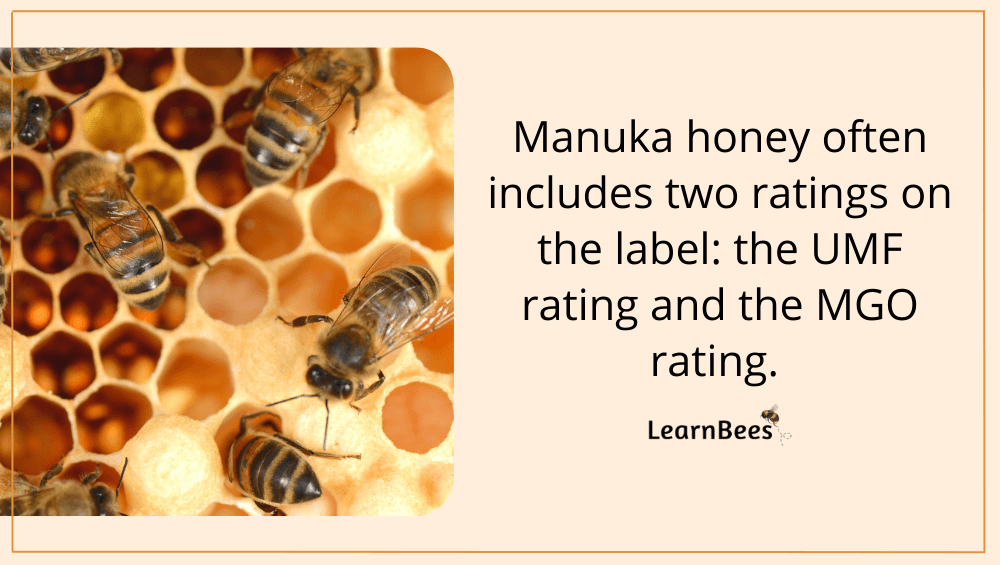
So with that in mind, you might be asking:
What are the benefits of manuka honey?
Let’s discuss a few:
- Benefit 1: Manuka honey has been FDA-approved as a wound treatment. In medical settings, manuka honey has been shown to promote skin healing, accelerate tissue regeneration, and decrease pain in people suffering from wounds.(4, 5)
- Benefit 2: Manuka honey offers benefits for oral health. Research shows that manuka honey can treat bacteria that leads to plaque formation, tooth decay, and gum inflammation.(6, 7, 8)
- Benefit 3: Manuka honey can help with digestion. One study found that manuka honey has increased antioxidant levels and decreased inflammation in rats with ulcerative colitis and IBS.(9)
- Benefit 4: Manuka honey can relieve a sore throat. Manuka honey can coat the throat’s inner lining and reduce inflammation associated with sore throats.(10)
- Benefit 5: Manuka honey is rich in antioxidants like phenolic acids and flavonoids. Antioxidants are important because they can protect cells against disease-causing free radicals.(11, 12)
With that in mind, the next question that comes to mind is:
Are There Alternatives to Manuka Honey?
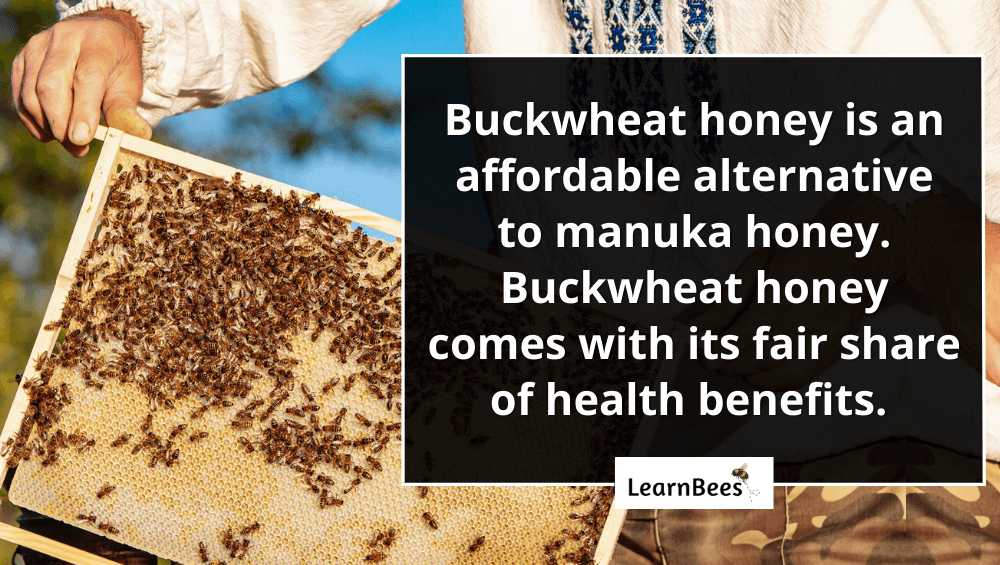
We recommend raw buckwheat honey as an affordable option to manuka honey.
Honeybees make buckwheat honey from buckwheat plants. Thanks to its powerful antioxidants like polyphenols, buckwheat honey has a rich, dark color.
Buckwheat honey’s flavor is compared to several things – molasses, coffee, and even caramel. Mostly it’s described as a mix between somewhat nutty and somewhat sweet.
But here’s the thing:
No matter what type of honey you buy, you’ll want to choose raw honey over processed honey.
More specifically, look for labels that say “raw” or “unpasteurized.” Don’t be fooled by labels that say things like “organic,” “natural,” or “pure.” Such buzz words don’t necessarily mean the honey is raw.
But why raw honey?
Because raw honey has antibacterial, anti-inflammatory, and antifungal benefits that overly processed honey doesn’t have. This is because such benefits get stripped out of honey once it’s overheated during the pasteurization process.
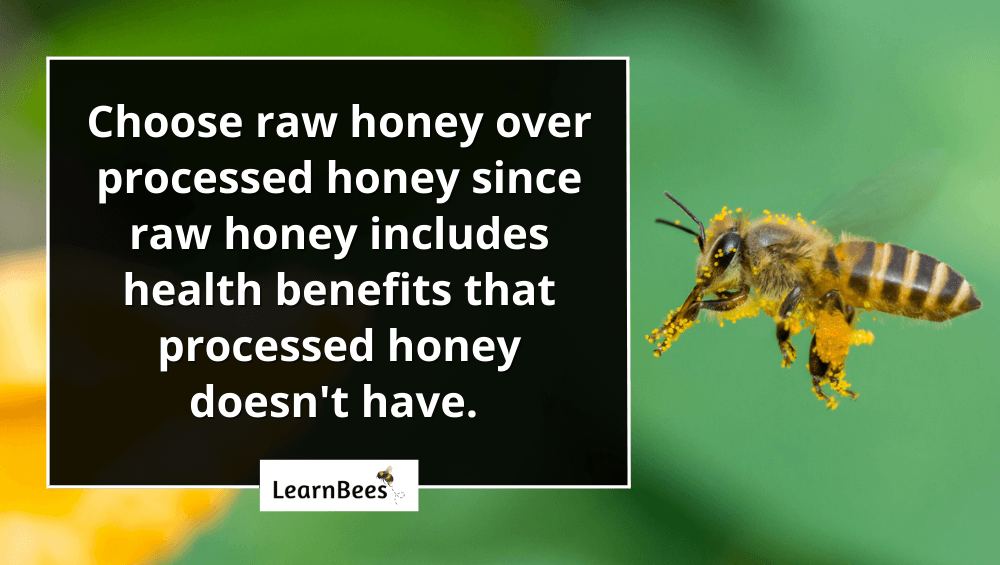
Now you might be wondering about buckwheat honey’s health benefits. Here are a few:
- Benefit 1: Buckwheat honey has shown to be more effective than some over-the-counter cough medications. Buckwheat honey successfully soothed a sore throat and cough of 300 children suffering from these ailments.(13)
- Benefit 2: Buckwheat honey can reduce triglyceride and cholesterol levels. Buckwheat honey has been shown to help reduce cholesterol levels and lower high blood pressure.(14)
- Benefit 3: Buckwheat honey can increase antioxidant levels in the blood. In one study of 25 men, buckwheat honey mixed with water or tea was shown to increase antioxidant levels.(15)
- Benefit 4: Buckwheat honey can heal wounds. Thanks to its antibacterial and anti-inflammatory properties, buckwheat honey effectively heals wounds.(16)
- Benefit 5: Buckwheat honey can promote heart health. Buckwheat plants contain rutin, which is a bioflavonoid that can help improve blood circulation, lower cholesterol, prevent blood clots, and reduce arthritis pain.(17, 18)
FAQs on “Why is Manuka Honey So Expensive?”
- How much does manuka honey cost?
- What is so special about manuka honey?
- Are there cheaper alternatives to manuka honey?
- What is the difference between manuka honey and normal honey?
- What is the most expensive type of honey?
- Why is manuka honey better than local honey?
- Is manuka honey a con?
- Who should not take manuka honey?
- Can you eat manuka honey every day?
- Do bees make manuka honey?
- Which is better manuka or raw honey?
- What does manuka honey taste like?
- Can you drink manuka honey in tea?
How much does manuka honey cost?
Manuka honey can be quite expensive, with a small jar costing around $30. The price goes up depending on the UMF and MGO ratings. For instance, we’ve seen jars of manuka honey cost nearly $200.
But if you do a quick online search, you’ll find manuka honey that has an extensive range of prices. Certain brands, like New Zealand Honey Co., specialize in manuka honey.
New Zealand Honey Co. partners with local beekeepers in New Zealand. The company is based in Mount Maunganui, a coastal town on New Zealand’s North Island.
—> Go back to the FAQs on “Why Is Manuka Honey So Expensive?”
More to Explore:
- Honey Pasteurization: Does it Ruin Raw Honey?
- Honey for Skin Benefits: Directions, Uses, & Risks
- 8 Scientific Benefits of Raw Honey
What is so special about manuka honey?
“Is manuka honey actually better?” is a common question we get.
The answer?
Manuka honey definitely comes with health benefits. But does that mean it’s better than other types of honey? Not necessarily.
Here’s the thing:
There haven’t been clinical studies comparing the differences between manuka honey and other types of honey. So while we know that manuka honey is rich in antioxidants, we can’t say for sure that it’s better than, say, eucalyptus honey.
However, plenty of medical research shows that manuka honey has benefits. That said, other types of honey – like buckwheat honey – have also shown to come with their fair share of health benefits.
That’s why raw buckwheat honey is our recommendation for an affordable alternative to manuka honey.
But of course, if you’d rather go with manuka honey, that’s perfectly fine too.
—> Go back to the FAQs on “Why Is Manuka Honey So Expensive?”
More to Explore:
Are there cheaper alternatives to manuka honey?
Raw buckwheat honey is a great alternative to manuka honey. It comes with similar health benefits and is more widely available. As such, it’s more affordable than manuka honey.
—> Go back to the FAQs on “Why Is Manuka Honey So Expensive?”
More to Explore:
What is the difference between manuka honey and normal honey?
Here’s the thing:
The term “normal honey” isn’t specific because there are more than 300 types of honey. Wildflower honey, clover honey, and blueberry honey are common examples.
So when someone says “normal” or “regular” honey, it’s tough to truly know what they mean. But in most cases, people are referring to grocery store honey when they use that term.
Raw manuka honey is typically better than grocery honey because it isn’t processed. Grocery store honey is often heated, which can damage some of the beneficial enzymes and antioxidants.
Additionally, grocery store honey may be filtered to the point where no pollen particles remain. It may also include artificial sweeteners that dilute the honey.
—> Go back to the FAQs on “Why Is Manuka Honey So Expensive?”
More to Explore:
What is the most expensive type of honey?
Elvish honey is the most expensive type of honey in the world. It’s made by honeybees that live in Turkey, and it can cost over $6,000.
However, there is no evidence to suggest that elvish honey is the most superior type of honey. It’s simply been deemed a luxury item for which some people are willing to shell out lots of money.
—> Go back to the FAQs on “Why Is Manuka Honey So Expensive?”
More to Explore:
Why is manuka honey better than local honey?
Manuka honey isn’t necessarily better than all types of local honey.
Sure, manuka honey has been proven to come with health benefits. But so has other types of honey.
Furthermore, there hasn’t been scientific research comparing manuka honey to other honey varieties. So we can’t definitively say that manuka honey is the best.
That said, many people enjoy manuka honey because it’s produced in New Zealand – which makes it more exclusive than other honey types. The climate and the plants create a unique flavor profile that makes the honey unique.
New Zealand is also known for its strict food safety standards, which offer another layer of assurance for some honey consumers.
—> Go back to the FAQs on “Why Is Manuka Honey So Expensive?”
More to Explore:
Is manuka honey a con?
Manuka honey is not a con because it’s proven to be rich in antioxidants and enzymes. It has high quantities of antibiotic compounds, such as hydrogen peroxide and methylglyoxal.
As a result, some of the benefits of manuka honey include:
- Reducing inflammation
- Healing wounds
- Soothing digestive issues
- Fighting harmful bacteria
Of course, manuka honey isn’t a miracle cure. And it’s important to remember that even though manuka honey is more expensive than other types of honey, that doesn’t mean it’s the end-all-be-all.
For instance, buckwheat honey is more affordable than manuka honey, yet it’s still shown to offer plenty of health benefits. So it really depends on your needs and preferences as to whether manuka honey is worth the price.
—> Go back to the FAQs on “Why Is Manuka Honey So Expensive?”
More to Explore:
- The Top 3 Best Manuka Honey Brands
- Orange Blossom Honey: Uses, Benefits, & Risks
- Sourwood Honey: Uses, Benefits, & Risks
Who should not take manuka honey?
Manuka honey is generally considered safe for most adults over 12 months.
The exception is for children under 12 months. Raw honey contains a type of bacteria that can cause botulism in infants. Infant botulism is a rare yet serious condition that can cause paralysis, trouble breathing, and muscle weakness.
Once the child is older than 12 months, they can eat manuka honey.
Also, people with diabetes should be cautious when eating manuka honey. This is because it contains sugar and can cause blood sugar levels to rise.
If you have diabetes, it’s wise to speak with your doctor before incorporating manuka honey into your diet.
Additionally, people with allergies to pollen may experience some irritation after eating manuka honey. This is because raw honey can contain small traces of pollen in it. That said, this isn’t necessarily true for everyone. But it’s important to keep in mind.
—> Go back to the FAQs on “Why Is Manuka Honey So Expensive?”
More to Explore:
Can you eat manuka honey every day?
Yes, most individuals over 12 months can safely eat manuka honey daily.
In fact, some people do eat manuka honey every day because of its health benefits. These include reducing inflammation, healing wounds, and soothing digestive issues.
Of course, it’s important to moderate your intake. This is because manuka honey is high in sugar and calories. So overeating it can cause blood sugar levels to rise, which should be considered, especially for individuals taking insulin.
—> Go back to the FAQs on “Why Is Manuka Honey So Expensive?”
More to Explore:
- The Brutally Honest Truth About Sour Honey
- Buckwheat Honey: Uses, Benefits, & Risks
- Can You Eat Honeycombs?
Do bees make manuka honey?
Yes, honeybees make manuka honey.
Manuka honey is produced when bees collect nectar from the manuka tree. The nectar is then taken back to the hive, where it’s turned into honey.
—> Go back to the FAQs on “Why Is Manuka Honey So Expensive?”
More to Explore:
Which is better manuka or raw honey?
This is tough to answer because the term “raw honey” doesn’t refer to a specific type of honey. It can be raw clover, wildflower, or blueberry honey.
That said, raw honey is superior to processed honey. Processed honey is most commonly found in cheap teddy bear containers in the grocery store.
—> Go back to the FAQs on “Why Is Manuka Honey So Expensive?”
More to Explore:
What does manuka honey taste like?
Manuka honey has an earthy taste with a sometimes medicinal finish.
It’s not as sweet as other types of honey, which some people prefer. Additionally, the flavor can vary depending on the bottle or company packaging the honey.
—> Go back to the FAQs on “Why Is Manuka Honey So Expensive?”
More to Explore:
Can you drink manuka honey in tea?
Yes, manuka honey can be drunk in tea.
To do so, add a teaspoon or two of manuka honey to a cup of tea. The honey will dissolve in hot beverages after being stirred in.
—> Go back to the FAQs on “Why Is Manuka Honey So Expensive?”
